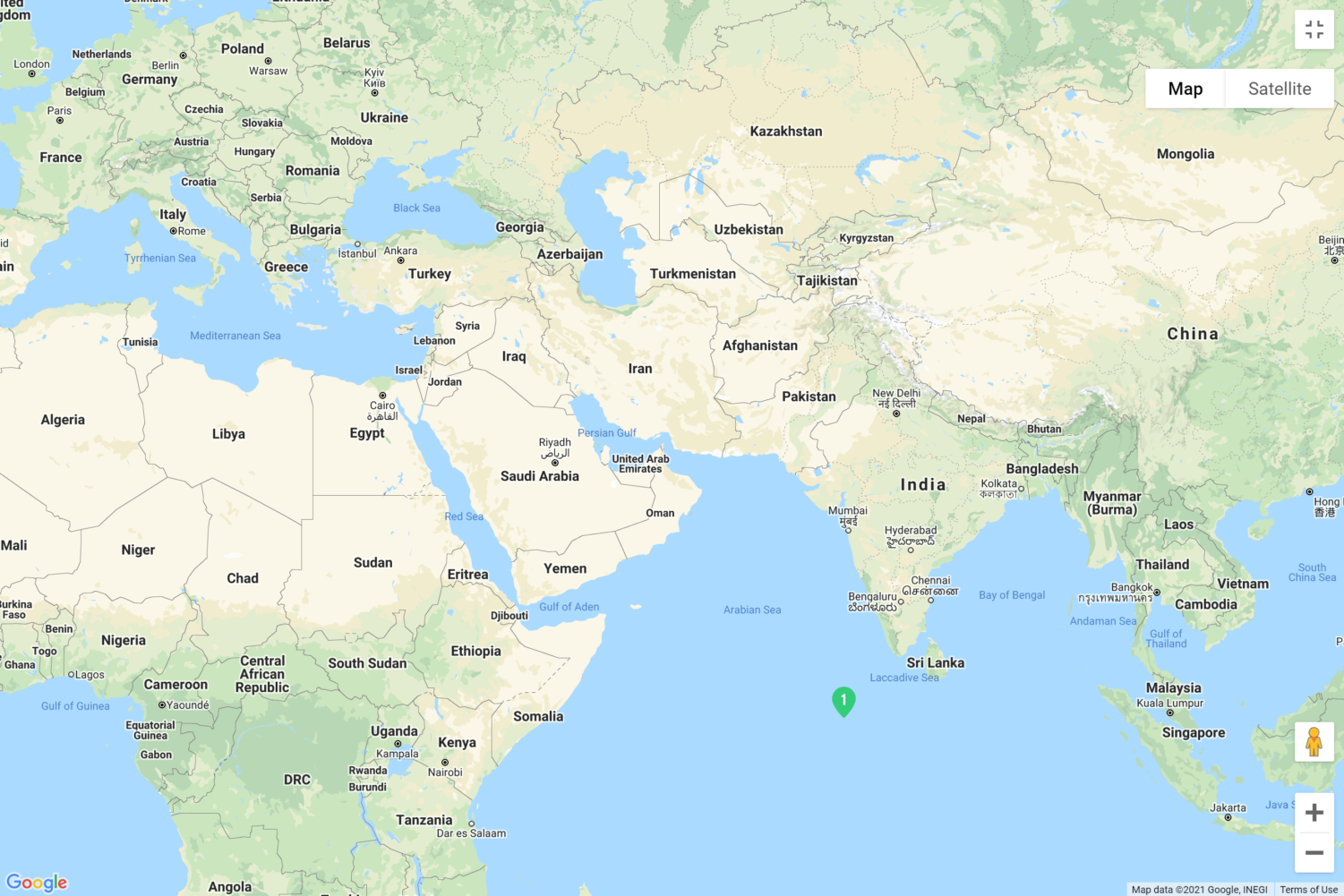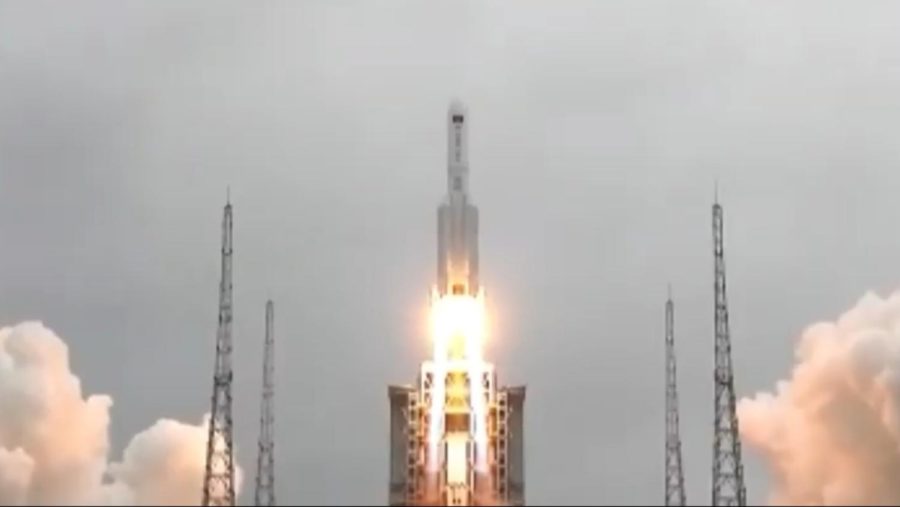Chinese Rocket Launcher Crashes Back to Earth
May 17, 2021
On Sunday, May 9th, the rocket carrying a piece of China’s Tianhe Space Station uncontrollably crashed back down to Earth and fell somewhere in the Indian Ocean at 10:24 AM in Beijing time.
On April 29th, China successfully launched its Long March 5B rocket from Wenchang Space Launch Center in Hainan province. The rocket lifted off, carrying the new Tianhe Space Station’s core module. In the process of forming a Chinese modular space station in low earth orbit, which is about 370 km above the planet, China sent out the first of 11 parts of the space station, which will be called “Tianhe” or “Heavenly Harmony.”
However, things did not go according to plan. After the core module separated from the rest of the rocket, it was supposed to fall back to a predetermined spot in the middle of the ocean—far away from civilization. Instead, the rocket haphazardly flew into the earth’s orbit, thus breaking all the meticulous plans and calculations and disrupting the control of the mission. The 46,000-pound rocket was orbiting the planet uncontrollably at about 17,234 miles per hour, and no one had the slightest idea where it would land. The unpredictability of the rocket’s path incited some unrest among people all around the world who were worried that it would land on them. However, it is much more likely that any space object would land on uninhabited areas, as the oceans cover more than 70% of earth’s surface.
The rocket’s fuel was dying out, and it appeared to be slowly tumbling back to Earth while speeding around the planet at unruly rates. Based on the pattern of its path, scientists estimated that the debris would make landfall on the night of Saturday, May 8th, or on Sunday, May 9th. Because it was spinning so quickly and uncontrollably, it was impossible to predict where it would fall. “The high speed of the rocket body means it orbits the Earth roughly every 90 minutes and so a change of just a few minutes in reentry time results in reentry point thousands of kilometers away,” SpaceNews said. Although most space debris usually burns upon entrance to the earth’s atmosphere, some of the 23-ton Long March 5B withstood the conditions, as it was designed for high temperatures.
According to the China Manned Space Engineering Office, the debris made landfall Sunday morning in the Indian Ocean just west of the Maldives. “The vast majority of the device burned up during the reentry, and the landing area of the debris is around a sea area with the center at 2.65 degrees north latitude and 72.47 degrees east longitude,” said the agency.

The U.S. Pentagon had been vigilantly tracking the rocket and giving updates, but the velocity and magnitude of the rocket’s path made it so that scientists could not predict even the general region of its landing. The debris could come crashing down at any part of the world, and we were only able to estimate its landing site when it first re-entered the lower atmosphere (only a short moment before landfall). On Saturday night, landing site predictions ranged from Sardinia, Italy, Iberia, or Greece to Haiti, Israel, Jordan, Saudi Arabia, New York, or even Australia, according to Harvard astrophysicist Jonathan McDowell.
McDowell, who had been tracking the rocket’s movement, tweeted that the Long March 5B rocket was “bigger than anything recent, but not as big as Skylab and its ilk back in the day.” It is not the first time in aerospatial history that space detritus has gotten out of control. In fact, China’s 2018 space station Tiangong 1 also spun out of control and landed somewhere in the Pacific Ocean. Although the odds of someone being hit by a falling space object are about 1 in several trillion, NASA did condemn China for their irresponsible standards regarding space debris, as they should have been able to prevent this malfunction from happening again. Hours after the Chinese agency announced the rocket’s landing, NASA administrator Bill Nelson stated, “It is clear that China is failing to meet responsible standards regarding their space debris.” China does plan to launch another 10 rockets to complete its Tianhe space station project, so we should keep an eye out, just in case.

















































































































































